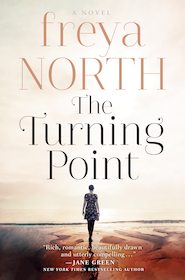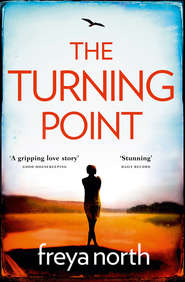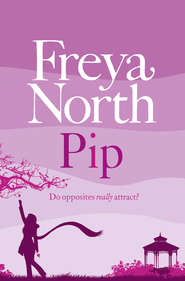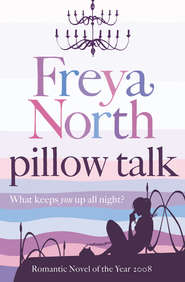По всем вопросам обращайтесь на: info@litportal.ru
(©) 2003-2024.
✖
Rumours
Автор
Год написания книги
2018
Настройки чтения
Размер шрифта
Высота строк
Поля
Herts
Monday
Dear Lydia
I hope this finds you in good health and high spirits. I took in the view of Longbridge Hall on my early morning run – the rain had lifted, a soft mist rolled quietly just above ground level, a glint of sunshine, a hint of spring – it really was a wonderful sight. Did you know there’s an extremely nice new Belgian patisserie recently opened in Ware? How about I treat you – or perhaps a bite of lunch at Hanbury Manor? Or just a stroll around Hatfield House? Audrey and Bert send their best – and I send my fondest.
Xander
Lady Lydia Fortescue read the letter twice. First with a smile, then with her customary wry consternation. A Belgian patisserie? In Ware? Was the boy forgetting Longbridge’s own Mrs Biggins whose scones and Victoria sponge and shortbread were legendary? Why buy foreign, dear God? And lunch at Hanbury Manor – preposterous! Rumour had it that New Money went there, and frightful Hen Party girls lolled around the place at weekends. Apparently, the hotel now had one of those gym places where men and women wore ridiculous get-ups and sweated and grunted alongside each other like toiling workhorses. A walk at Hatfield? During public opening hours? Paying for the privilege when she’d often been there as a guest of the Salisburys? And he’d written ‘Audrey and Bert’ – as if, had he just said ‘my parents’, she might be prone to have forgotten who they were.
Lydia laughed – a little staccato rush of air through her nostrils. Dear Xander. She would love to see the boy. How long had it been? A month? Six weeks? Atrocious! She walked from the drawing room through the staircase hall and across the entrance hallway over to the library. At the writing bureau, she sat and rummaged through the chaotic upper drawer for one of her heavy, watermarked, monogrammed cards.
Longbridge Hall
Long Dansbury
Hertfordshire
Wednesday
My dear Xander,
A treat to hear from you. Delighted to have provided an aesthetic backdrop to your athletic endeavours. I must decline the foreign bakery, and the public liability of Hanbury or Hatfield. But do come to tea at Longbridge, dear. Shall we say Saturday next – at half past three?
Yours,
Lydia F
Rifling through another drawer, becoming a little sidetracked by a clutch of old thank-you cards sent to her after some dinner party or other an age ago, Lydia found a sheet of second-class stamps. And then she came across the estimate for the roof repairs which she’d hidden on purpose months ago. She glanced at the columns of figures – the grand total – and cast her eyes to the heavens. Only, the ceiling was in the way and, taunting her, the yellow watermark ominously circumnavigating the cracked plaster of the ceiling rose. She buried the paperwork in an ancient copy of Country Life and set off for the postbox outside the village shop.
As Lydia walked back, she chided herself for not taking the car because she was undeniably tired. And silly – it wasn’t as if anyone would judge her, not at her age, not that she was remotely concerned with what anyone thought anyway. The driveway seemed to be so long these days and when did it develop this incline? Underfoot felt hard, uneven, despite her wearing her most comfortable slip-ons. She laughed – recalling a time when she refused to even glance at comfortable shoes, let alone buy them and wear them out in public.
Finally, she was home. And then she realized she’d forgotten her keys. No use knocking, it was Mrs Biggins’ day off. She went to the side of the house knowing the back door was unlocked because it was so tricky to lock that they’d given up years ago and just used the bolts, but she doubted it was bolted because Mrs Biggins wasn’t tall enough to shunt the topmost one across, and both she and her housekeeper were now old enough to eschew using anything one had to climb upon in order to reach something.
There were seven stone steps leading down to the door and, through the frosted glass pane, Lydia could see the comforting welcome of the lights she’d accidentally left on in the house. Down one step, two – it was really quite chilly. Three, four, five. Finally! Six and –
She fell. She wasn’t sure why. It didn’t matter why. But her shoulder bore the brunt and she took a knock to the side of her face too. It hurt, of course it hurt. But more significant than the pain was the shock. She felt frightened and that appalled her.
Mrs Biggins, damn you and your day off! Lydia stayed still for a few minutes. Was anything broken? She’d fractured various bones in hunting accidents over the years – no, she didn’t think so. Still, she felt most unsure about picking herself up. Her cheekbone was throbbing and her fingers were numb.
Hullo? Is anyone home? What a stupid question – why would there be? Mrs Biggins was probably in Bishop’s Stortford with her daughter. Mercifully, the door was indeed unlocked and Lydia finally made her way shakily inside. She checked her reflection and noted a red mark on the apple of her cheek, growing darker. Frozen peas, she thought, going into the kitchen. And then the lights flickered. Oh dear God, no. Just wait until I have the wretched peas, would you! Flickered again. And then off.
Once again, something somewhere had fused. Even without the fall, Lydia wouldn’t go feeling and fumbling her way to the panel down in the basement. More uneven stone steps. And an ancient and hostile fuseboard in what really was a dank dungeon. Silly old cheek – it was horribly sore. Lydia clasped her way along the kitchen wall to the dresser and located a box of matches after various things fell to the floor, one of which made the undeniable sound of something thick spilling. Lighting match after match, she managed to illuminate the safest passage to the cupboard under the sink where she knew there’d be a torch. Whether or not it had a battery in it would be another matter. Luckily, it did and its soft orange beam directed her to the freezer where she retrieved the peas and placed them in a tea towel against her cheek. Really, she should phone someone – Art or Clarence. But she didn’t want to. She really didn’t. Instead, she sat in the dark in the drawing room for a while, trying to read Country Life by the waning light of the torch until she told herself she wanted an early night anyway and didn’t care for whatever it was that Mrs Biggins would have left her for her supper all the way back in the kitchen.
Chapter Five
The longest thing about Long Dansbury village was the high street, with all other streets branching off it in short runs like the veins on a horse chestnut leaf. The high street itself, whilst not a cut-through to anywhere from anywhere, was still relatively busy in terms of traffic because along its length lay the church, the primary school, two good pubs, a Spar general store which also sold newspapers and stamps, and Michael Lazarus’s ironmongery – which was more of a museum than a shop, if the number of people who ventured into the Dickensian interior simply to look rather than to buy, was anything to go by. The houses along the high street were defined as being either at Top End or else at Back End, though in fact from the centre, which was marked by the gates and long, snaking driveway to Longbridge Hall, the high street sloped upwards to either end. But Top End had always been known as such because here the finer, larger houses sat spruce and proud, like dapper Georgian gentlemen keeping an eye on things. In comparison, like a scatter of peasant children, were the cottages which defined the Back End; some standing on their own like shy sheep, some in a chatter of four or five in short terraces. What made the high street so pretty was that all the buildings, whatever their size, had frontage. Even in winter, flowers and well-tended shrubs proudly sang forth.
Beyond the cottages, a thatch of woodland bristled to either side of the road, after which the new houses stood in an embarrassed huddle. These were, in fact, pre-war and far more sensible family homes than the old cramped cottages. But they would always be known as the New Houses in a gently dismissive way. Even the people who lived there gave their address with a slightly resigned tone.
Pride of place, not just in the village but in the wider locale itself, was Longbridge Hall, seat of the Fortescue family, the Earls of Barbary, for eight generations. It was as if Longbridge Hall had sat down so firmly, so emphatically, directly at the centre of the village, that the road to either side had been pushed upwards; rather like a portly old uncle settling himself right in the middle of a sagging sofa. The house itself was not actually visible from the high street; set some way back, its presence was nonetheless felt – the wrought-iron gates with handsome stone supports and the parade of lime trees lining the imposing driveway and heralding something undeniably grand beyond.
When Stella arrived on the Saturday morning, to meet Mrs Benton at number four Tidy Row Cottages, she couldn’t believe that, as a Hertfordshire girl, she’d never once been to Long Dansbury. Parking her car, as she’d been instructed, in the gravel rectangle opposite the Spar, she was glad to be early and she walked slowly, taking in the surroundings. In fact, she was so enthralled by the houses, she wasn’t actually looking where she was going. And Xander was so busy checking his pedometer as he ran, estimating he’d need to sprint up Back End, that he saw the woman only at the last minute.
The runner clipped Stella’s shoulder hard, sending her Elmfield Estates folder flying.
‘Oi!’ she turned and glowered, rubbing her arm indignantly.
He ran on the spot for a step or two, held his hands up in mock surrender and panted, ‘Sorry!’
‘Honestly!’ Stella muttered as she chased the scatter of sheets. ‘You could at least help.’
He jogged in an exasperated arc back to her and gathered some of the papers, thrusting a scrunch of them at her, before belting off.
As she sifted and sorted, somewhat flustered, a passer-by stopped to help.
‘Don’t mind Xander,’ the good Samaritan said. ‘He’s in training.’
‘He’s a public liability,’ Stella muttered. ‘Joggers – like caravans and big lorries – should only be allowed out after hours.’
The other woman picked up the Elmfield Estates terms and conditions and thought how Xander would have something to say about being called a jogger. ‘Do you know where you’re going?’
‘Er, Tidy Row Cottages. Number four.’
‘Mercy,’ the woman muttered and for a moment Stella wondered if there was something she should know before she remembered the appointment was with a Mrs M. Benton.
‘Mrs Benton,’ Stella said.
‘Fancy that,’ said the woman, looking Stella up and down. ‘John Denby won’t be pleased.’ John Denby’s For Sale sign had been outside Mercy Benton’s cottage for quite some time. Houses in Long Dansbury were only ever sold by John Denby. Fancy that. Wonder if they knew! She’d call Margaret as soon as she was home. See if she’d heard anything.
‘Well, thank you for your help,’ said Stella, sensing slight resistance when she tried to take the Elmfield forms from the lady.
Mercy Benton’s cottage was compact and immaculate and though the kitchen was old it could be modernized with minimal fuss. Stella walked around with the owner, genuinely charmed by the features and also by the owner’s furniture and trinkets. It reminded her of her late grandmother’s place. A porcelain ornament of a Shire horse and foal. A cut-glass lidded bowl full of stripy humbugs. Antimacassars on an olive-green velvet sofa and armchair. Photographs of family on top of the telly.
‘I love it!’ Stella told her.
‘I do too,’ said Mrs Benton. ‘But it’s time to go.’
‘And you’ve found an apartment at Summerhill Place?’
‘Oh, it’s lovely. It really is.’
‘So I’ve heard,’ said Stella.
‘You know it was once a country mansion? How grand that I’ll be living there! They’ve done a lovely job. It’s all self-contained apartments now – but with tea served in a smashing room downstairs for residents every afternoon. And a cleaner once a week. And bridge on Tuesdays. Bingo on Thursdays. Recitals and the like on Saturdays. And an emergency call button. All sorts going on. Such lovely grounds – ever so grand. Beryl went there a year ago. Loves it. We were at school together, you know.’
Stella nodded. ‘Was Beryl from Long Dansbury too?’











